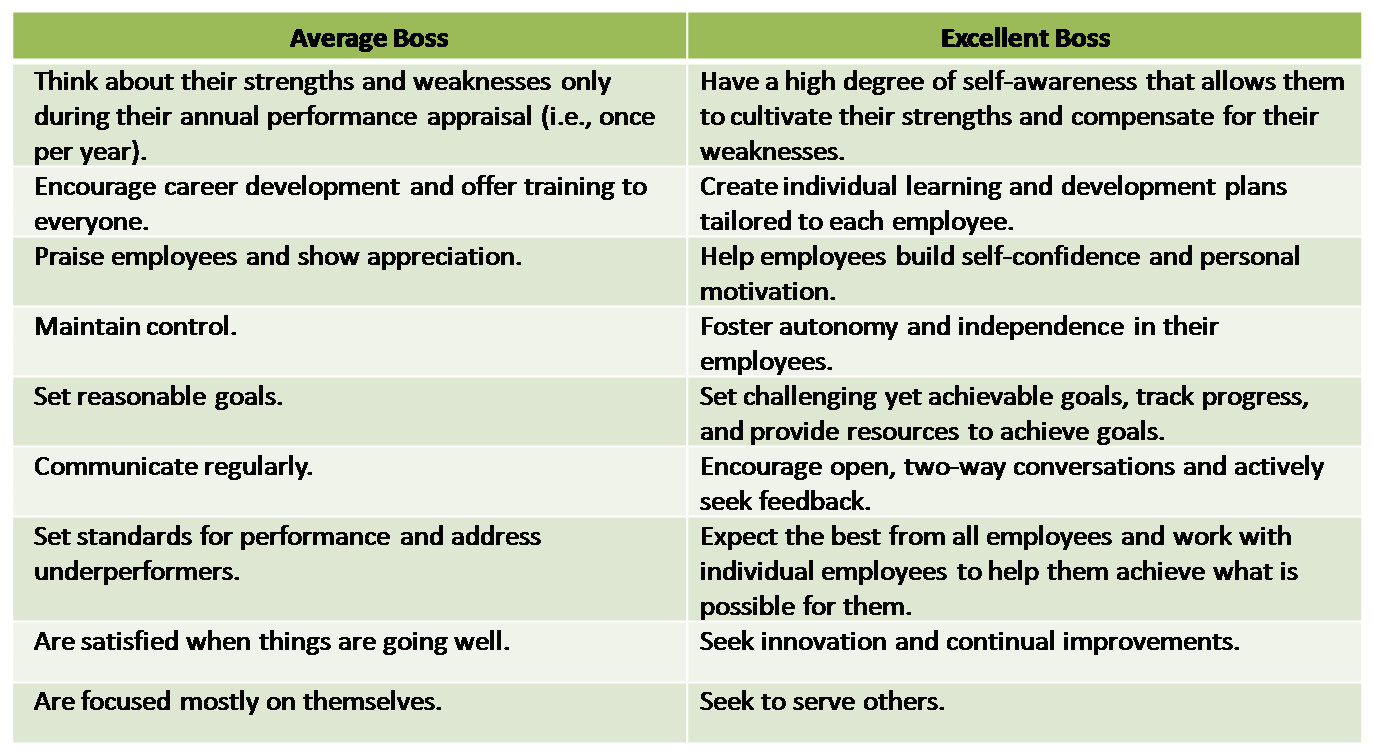Our expert management training consultants have conducted studies to determine the reasons that employees leave their jobs. Most reasons point squarely to their bosses:
-
39% said their supervisors didn’t keep their promises.

-
37% said their supervisors failed to give credit when due.
-
31% said their supervisors gave them the “silent treatment.”
-
27% said their supervisors made negative comments about them to others.
-
23% said their supervisors blamed others to cover up their own mistakes or embarrassment.
As a result, employees reported feeling more tension, mistrust, and exhaustion, and were less satisfied and less likely to take on additional tasks or work longer hours. In other words, supervisors directly affect their employees’ productivity and satisfaction in the workplace.
There are many different behavior styles that you should be aware of as a boss, and recognizing your own allows you to adjust your behavior to meet others’ needs. Download our free Behavioral Style Guide today!
Leadership Behavioral
Style Guide
On the flip side, in another study, 44% of employees said that their individual supervisor was the most important factor in increasing employee engagement. And when employees are engaged, 70% say they have a good understanding of how to meet customer needs (versus 17% of non-engaged employees), 78% would recommend their company’s products or services (versus 3% of non-engaged), and 86% say they very often feel happy at work (versus 11% of non-engaged).
What will make you the boss everyone wants to work for?
This chart summarizes the differences between the attitude and behaviors of average and excellent bosses:

Attentiveness to Others:
One of the very best ways to be a super boss—the boss everyone wants to work for—is to give individual attention to your staff members. However, as a boss you have so many things to do—how do you decide where to focus your efforts toward others?
Focus on Strengths
One study found that the biggest improvements result from helping employees develop their greatest strengths rather than correcting weaknesses. It was found that building strengths potentially increased employee engagement by nearly 80%, whereas correcting weaknesses increased engagement by 3%. Helping employees identify and develop “competency companions” —behaviors that support their main strength—also increases employee effectiveness.
Ways to Provide Individualized Attention
-
Coach: Help employees build on their strengths and improve their day-to-day performance by focusing on their top one to three strengths and doing the following:
–Help employees set short- and long-term goals for their current position.
–Provide regular and frequent feedback. Make positive reinforcement more common than corrective feedback.
–Provide training and other methods for gaining experience and knowledge (shadowing, mentoring, delegating new tasks and responsibilities, participating in industry groups, etc.).
-
Adviser: Help employees create a big picture of their careers, and think beyond their current position.
–Help employees set long-term goals for their overall career.
–Engage in uninterrupted, two-way career-development discussions.
–Help employees identify their skills, interests, and values.
–Provide a realistic picture of employees’ career options.
Rewards and Recognition
Employees are like snowflakes—no two are the same. So don’t treat them the same. If you offer rewards and recognition (and you should!), find out what each individual employee prefers. Why would they be motivated by something that doesn’t interest them?
rewards and recognition (and you should!), find out what each individual employee prefers. Why would they be motivated by something that doesn’t interest them?
Questions to Ask
Try using the following questions to be able to provide the individual attention employees deserve.
-
What is the best day at work you’ve had in the past year? What made it so good?
-
What is the best praise or recognition you’ve ever received? Why did you value it so much?
-
What is the best relationship with a supervisor you’ve ever had? What made it work?
Are you interested in learning more about how you can be the boss everyone wants to work for? Do you or your organization require management training? Contact the experts at TrainingFolks today!
